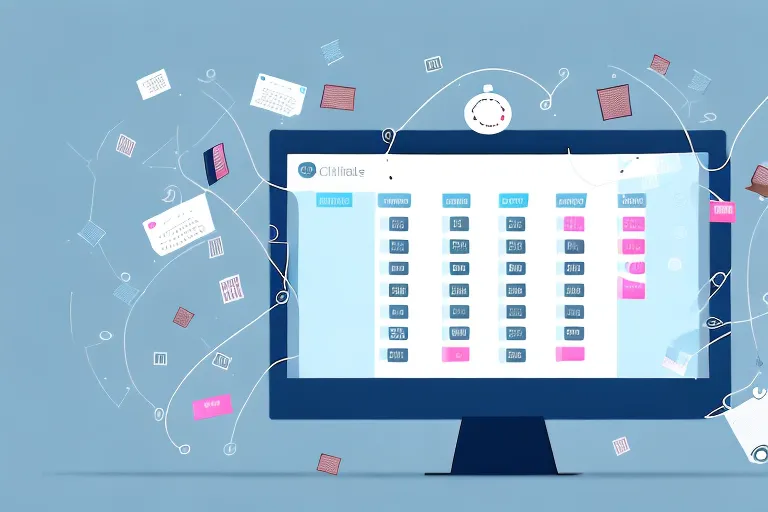Rich messaging has become an integral part of modern communication, allowing people to express themselves in more vibrant and engaging ways. However, scheduling these messages requires careful planning and execution to ensure they reach the intended recipients at the right time. In this article, we will explore the various aspects of rich messaging scheduling and discuss the role of developers in this process.
Understanding Rich Messaging Scheduling
Before delving into the intricacies of scheduling, let's first grasp the basics of rich messaging. Rich messaging refers to the use of multimedia elements, such as images, videos, and interactive content, to enhance the communication experience. It adds a new dimension to conversations, making them more expressive and dynamic.
Imagine a scenario where you receive a text message from a friend, and instead of just plain text, you see a beautiful image or a captivating video that instantly grabs your attention. That's the power of rich messaging. It allows you to convey emotions, tell stories, and engage with your audience in a more impactful way.
Now, let's dive into the importance of scheduling in rich messaging.
Importance of Scheduling in Rich Messaging
Scheduling plays a crucial role in maximizing the impact of rich messaging. By carefully planning when messages are sent, developers can ensure that they are delivered at the most opportune moments. Whether it's a promotional campaign or a critical announcement, timing can significantly influence the effectiveness of the message.
Let's take a closer look at why scheduling is so important in the realm of rich messaging.
1. Targeted Delivery: Scheduling allows you to target specific groups of recipients based on their time zones, preferences, or behavior patterns. For example, if you have a global audience, you can schedule messages to be sent at a time when most of your recipients are likely to be active and engaged.
2. Personalization: With scheduling, you can personalize your messages based on the recipient's demographics, interests, or past interactions. By sending messages at the right time, you can create a sense of exclusivity and relevance, increasing the chances of a positive response.
3. Avoiding Information Overload: In today's fast-paced world, people are bombarded with information from various sources. By scheduling your rich messages strategically, you can avoid overwhelming your audience with too much content at once. Instead, you can spread out your messages over time, allowing for better absorption and retention.
4. A/B Testing: Scheduling also enables you to conduct A/B testing, where you can send different versions of your rich messages to different segments of your audience at different times. This allows you to gather valuable data and insights on what resonates best with your recipients, helping you optimize your messaging strategy.
5. Event-based Messaging: Scheduling becomes especially important when it comes to event-based messaging. Whether it's a product launch, a flash sale, or a time-sensitive announcement, scheduling ensures that your messages reach the right people at the right moment, maximizing the impact and driving desired actions.
In conclusion, scheduling is a vital component of rich messaging. It empowers developers and marketers to deliver their messages with precision, ensuring maximum engagement and effectiveness. By leveraging the power of timing, personalization, and targeted delivery, scheduling enhances the overall communication experience and drives better results.
The Role of Developers in Rich Messaging Scheduling
Developers play a pivotal role in the successful implementation of rich messaging scheduling. They are responsible for creating the necessary infrastructure and integrating it into existing systems. Let's explore the key responsibilities of developers in this regard.
Key Responsibilities of Developers
Developers are tasked with designing and building the scheduling system. This involves understanding the requirements of the messaging platform, creating a user-friendly interface for scheduling messages, and ensuring seamless integration with other systems. Additionally, they must develop robust error handling mechanisms to address any potential issues that may arise during the scheduling process.
When designing the scheduling system, developers need to consider various factors. They must analyze the scalability requirements to ensure that the system can handle a large volume of scheduled messages without any performance issues. Moreover, they should take into account the security aspects to protect the sensitive data of the users.
Developers also need to collaborate closely with the design team to create an intuitive and visually appealing user interface for scheduling messages. They should consider factors such as ease of use, accessibility, and responsiveness across different devices. By incorporating user feedback and conducting usability tests, developers can refine the interface and enhance the overall user experience.
Seamless integration with other systems is another crucial responsibility of developers. They need to establish connections with external APIs and databases to fetch relevant data and synchronize it with the scheduling system. This integration ensures that the scheduled messages are personalized, timely, and aligned with the users' preferences.
In addition to building the core scheduling system, developers must also focus on error handling mechanisms. They need to anticipate and address potential issues that may occur during the scheduling process. By implementing proper error logging and monitoring systems, developers can quickly identify and resolve any errors or failures, minimizing disruptions to the messaging schedule.
Skills Required for Effective Scheduling
Effective scheduling requires developers to possess certain skills. First and foremost, they should have a strong understanding of the messaging platform's capabilities and limitations. This knowledge enables them to leverage the platform's features effectively and design a scheduling system that maximizes its potential.
Proficiency in programming languages is crucial for developing the scheduling system. Developers should be well-versed in languages such as Python or JavaScript, as these languages offer a wide range of libraries and frameworks that facilitate the development process. Familiarity with these languages allows developers to write efficient and maintainable code, ensuring the reliability and performance of the scheduling system.
Knowledge of database management is also essential for effective scheduling. Developers need to store and retrieve scheduling data efficiently, ensuring that the system can handle a large volume of messages without any delays. Understanding concepts such as indexing, query optimization, and data normalization helps developers design a robust and scalable database structure.
API integration is another skill that proves invaluable in ensuring smooth and efficient scheduling operations. Developers need to interact with external APIs to fetch data, such as user preferences or content for scheduled messages. Proficiency in working with APIs allows developers to establish secure connections, handle authentication, and retrieve data in a structured manner.
In conclusion, developers play a critical role in the successful implementation of rich messaging scheduling. Their responsibilities include designing and building the scheduling system, creating a user-friendly interface, ensuring seamless integration with other systems, and developing robust error handling mechanisms. To excel in this role, developers need to possess a strong understanding of the messaging platform, proficiency in programming languages, knowledge of database management, and expertise in API integration.
Tools and Technologies for Rich Messaging Scheduling
Several tools and technologies are available to aid developers in the process of rich messaging scheduling. Let's take a closer look at some of these options.
Overview of Available Tools
There is a wide range of tools specifically designed to facilitate rich messaging scheduling. These tools offer features such as message templates, scheduling calendars, and analytics dashboards. Some popular choices include Slack, Twilio, and Mailchimp. Researching and selecting the tool that best aligns with your requirements is essential for achieving optimal scheduling efficiency.
Selecting the Right Technology for Your Needs
The choice of technology used for rich messaging scheduling depends on various factors such as scalability, reliability, and cost. Cloud-based solutions provide scalability and flexibility, allowing developers to handle large volumes of messages efficiently. On the other hand, on-premises solutions offer greater control over data and can be a more cost-effective option for certain organizations. Carefully assessing these factors will enable developers to choose the technology that best fits their needs.
Challenges in Rich Messaging Scheduling for Developers
While rich messaging scheduling brings numerous benefits, it also presents certain challenges that developers must overcome. Let's explore some of the common obstacles and strategies for addressing them.
Common Obstacles and How to Overcome Them
One of the main challenges in rich messaging scheduling is ensuring message delivery across different platforms and devices. Developers can tackle this by employing cross-platform compatibility testing and optimizing message formats for various devices. They should also consider the potential impact of network congestion and optimize scheduling algorithms accordingly.
Ensuring Smooth Operation and Maintenance
An often-overlooked aspect of rich messaging scheduling is the maintenance of the scheduling system. Developers need to implement regular updates and bug fixes to ensure the system continues to function smoothly. Additionally, monitoring the performance of the scheduling infrastructure allows developers to proactively identify and address any potential issues.
Best Practices for Rich Messaging Scheduling
To maximize the efficiency and effectiveness of rich messaging scheduling, developers should adhere to certain best practices. Let's explore some tips for achieving efficient scheduling and maintaining quality and consistency in messaging.
Tips for Efficient Scheduling
One way to improve scheduling efficiency is by utilizing automation. Developers can automate repetitive tasks, such as message formatting and delivery, to reduce manual effort and minimize the chances of errors. Additionally, leveraging data analytics can provide valuable insights into the most effective scheduling strategies, allowing developers to optimize message delivery.
Maintaining Quality and Consistency in Messaging
Developers should ensure that messages sent through the scheduling system align with the organization's brand image and communication guidelines. By implementing proper message approval workflows and quality control measures, they can guarantee that messaging remains consistent and of high quality.
In conclusion, rich messaging scheduling is a crucial aspect of modern communication. Developers play an integral role in ensuring messages are delivered at the right time, to the right recipients, using the right tools and technologies. By understanding the basics of rich messaging and honing their scheduling skills, developers can contribute significantly to the success of this dynamic form of communication.

